Speaker and Panelist Bios
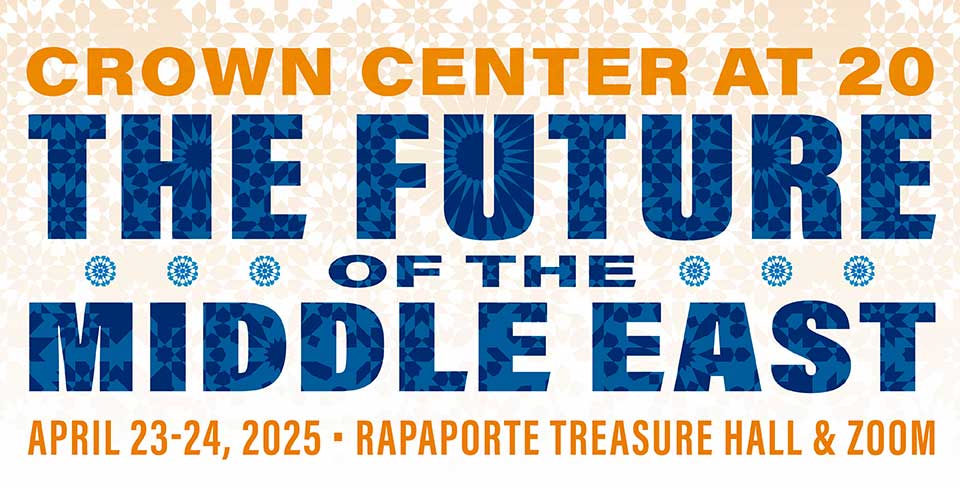
Wednesday, April 23 | Opening Day | 4-6:30 p.m.
Keynote Address: The Middle East’s Dangerous New Normal
registerSuzanne Maloney is the vice president and director of the Foreign Policy program at the Brookings Institution, where her research focuses on Iran and Persian Gulf energy. At Brookings, she is a leading voice on U.S. policy toward Iran and the broader Middle East, testifying before Congress, briefing policymakers, and engaging with government, non-profit organizations and corporations. She has authored or edited three books on Iran: "The Iranian Revolution at 40" (Brookings Institution Press, 2020), "Iran’s Political Economy since the Revolution" (Cambridge University Press, 2015), and "Iran’s Long Reach" (United States Institute of Peace, 2008). Maloney received a doctoral degree from the Fletcher School of Law and Diplomacy at Tufts University and studied in Tehran as part of the first academic exchanges between the United States and Iran since the 1979 revolution.
Iran: Regional and Global Challenges
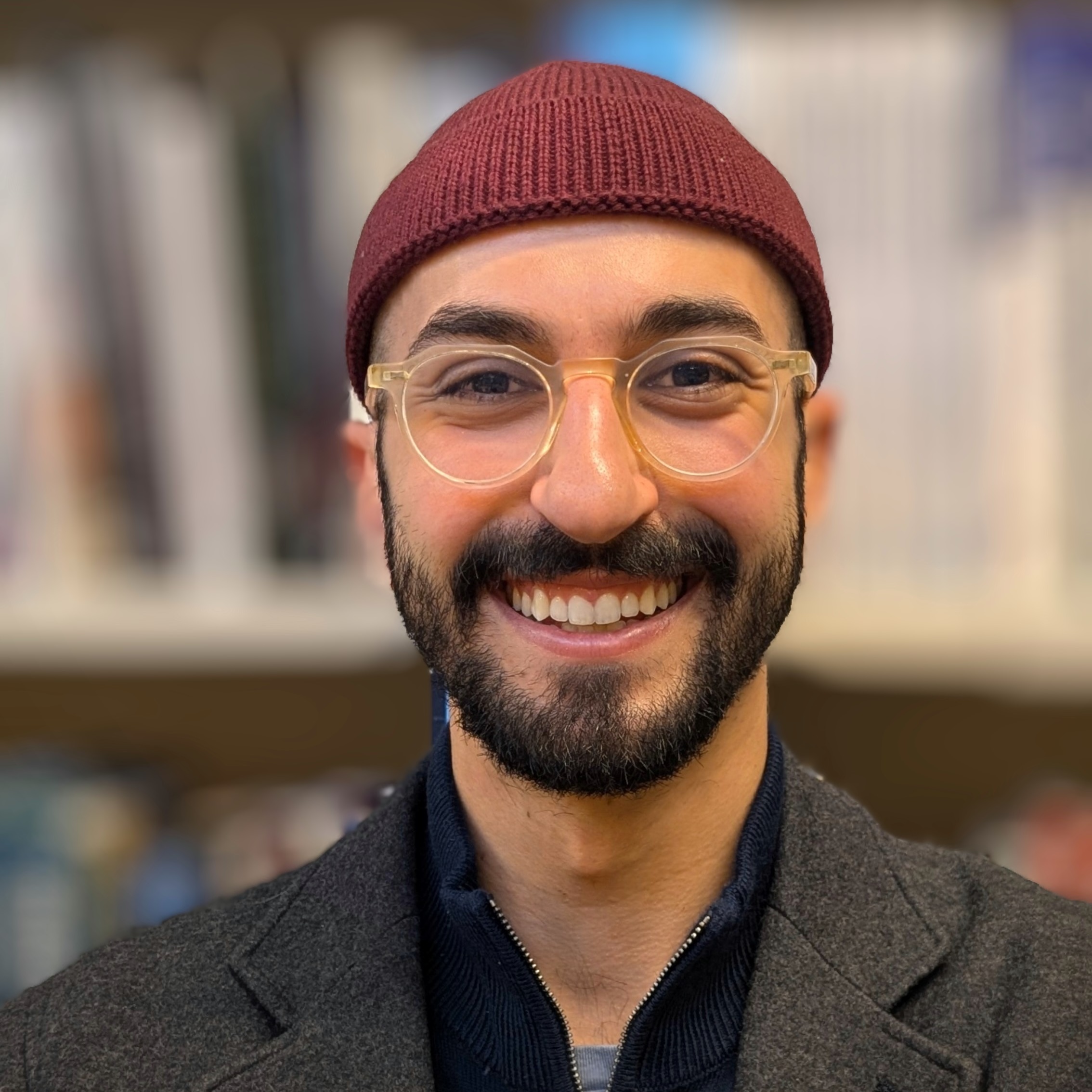
Daniel Amir is a junior research fellow at the Crown Center. He is a social and cultural historian studying nationalism and minority identity in the modern Middle East with a focus on Iran and Israel/Palestine. His current book project examines print culture and political ideology among Jews, Assyrians, and other religious communities in twentieth-century Iran. His work has appeared in Middle Eastern Literatures, the British Journal of Middle Eastern Studies, and Jewish Quarterly Review. Amir holds an MA and DPhil from the University of Oxford's Faculty of Asian and Middle Eastern Studies and an MSc from the London School of Economics and Political Science. Prior to his work in academia, he reported on Israeli and Iranian affairs as a BBC journalist.
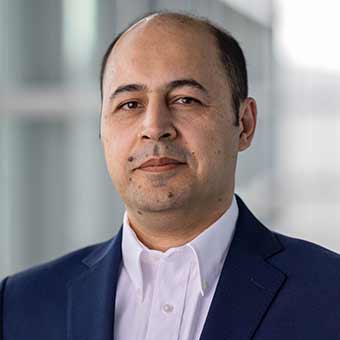
Hadi Kahalzadeh holds a PhD in social policy from the Heller School for Social Policy and Management and is a junior research fellow at the Crown Center. He studies the impacts of economic sanctions on Iran's social welfare, particularly poverty, inequality, and impoverishment in Iran. He holds an MA in sustainable international development from Brandeis, an MA in energy economics from the Islamic Azad University and a BA in Theoretical Economics from Allameh Tabatabai University in Tehran. Before joining the PhD program, Kahalzadeh worked as an economist with the Department of Economic and Social Planning in the Social Security Organization of Iran for eight years. He also served as a member of the board of several political parties and civil society pro-democratic organizations in Iran. He has contributed extensively to published analyses on various topics, including Iran's political economy, development, the welfare state, poverty, and inequality. His work has been featured in prominent media outlets such as The Guardian and Foreign Affairs. Kahalzadeh's research interests span various aspects of social welfare, including poverty measurement, impact evaluation, health, education, social security, and the political economy of policy reforms.

Gary Samore is the Crown Family Director of the Crown Center and Professor of the Practice of Politics at Brandeis Univeristy. He previously served as President Barack Obama's White House Coordinator for Arms Control and Weapons of Mass Destruction (WMD) and President Bill Clinton's Senior Director for Non-proliferation and Export Controls. He is also a senior fellow in the Project on Managing the Atom at the Belfer Center for Science and International Affairs at the Kennedy School of Government at Harvard University. He was a National Science Foundation Fellow at Harvard University, where he received his MA and PhD in government.
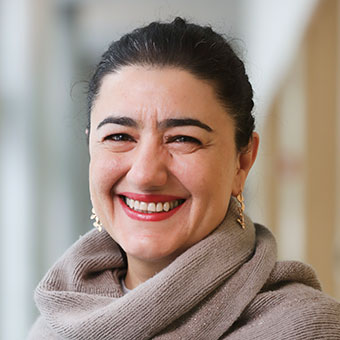
Naghmeh Sohrabi is the Charles (Corky) Goodman Professor of Middle East History and the Director for Research at the Crown Center for Middle East Studies. She is the author of "Taken for Wonder: Nineteenth Century Travel Accounts from Iran to Europe," and is currently writing a second book on the history of the 1979 revolutionary generation in Iran, for which she has received an Andrew W. Mellon New Directions Fellowship, a Mellon-Sawyer Seminar Fellowship in Comparative Revolutions (with Greg Childs), an ACLS fellowship, and the Berlin prize from the American Academy in Berlin. She was also awarded the Bernstein Faculty Fellowship (2015) and the Michael L. Walzer award for teaching excellence (2019). Professor Sohrabi is a member of the International Advisory Board, Oriental Institute, Czech Academy of Science, member of Advisory Board, Women’s World in Qajar Iran: A Digital Archive, and the president of the Association for Iranian Studies from 2020–2022.
Sanam Vakil is the director of the Middle East and North Africa Programme at Chatham House. Sanam’s research focuses on regional security, Gulf geopolitics, and on future trends in Iran’s domestic and foreign policy. She is also the James Anderson professorial lecturer in the Middle East Studies department at the Johns Hopkins School of Advanced International Studies (SAIS Europe) in Bologna, Italy. Sanam is the author of "Action and Reaction: Women and Politics in Iran" (Bloomsbury 2013). Sanam received her BA in political science and history from Barnard College, Columbia University and her MA/PhD in international relations and international economics from Johns Hopkins University.
Thursday, April 24 | Envisioning Regional Futures | 8:30 a.m. - 2:30 p.m.
The Future of Egypt and North Africa

Eva Bellin is the Myra and Robert Kraft Professor of Arab Politics at Brandeis University. She is the author of "Stalled Democracy: Capital, Labor, and the Paradox of State-Sponsored Development" (Cornell, 2002), and the co-editor of "Building Rule of Law in the Arab World" (Lynne Reinner Press, 2016). She has written extensively on authoritarian persistence in the Middle East, the political economy of development, the evolution of civil society, and the politics of cultural change. She has been a Carnegie Scholar (2007), a Princeton University Fellow (2006), and has served as an editor of the journal Comparative Politics since 2005. In 2015, she won the Dean's Award for Outstanding Mentorship of Graduate Students at Brandeis. Before coming to Brandeis, Bellin taught at Johns Hopkins/SAIS, Harvard University, Hunter College and the Graduate Center of the City University of New York. She earned her BA at Harvard University and her PhD from Princeton University.
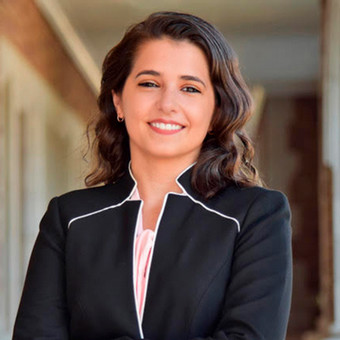
Candace Lukasik is an assistant professor of Religion and faculty affiliate in Anthropology and Middle Eastern Cultures at Mississippi State University and a faculty leave fellow at the Crown Center. Her research focuses on the transnational politics of migration, violence, and indigeneity in the Middle East, specifically Egypt and Iraq, and its US diasporas. Her first book, "Martyrs and Migrants: Coptic Christians and the Persecution Politics of US Empire" (NYU Press, forthcoming 2025) examines how American theopolitical imaginaries of global Christian persecution have remapped Coptic collective memory of martyrdom in migration. Drawing on continuing fieldwork with Assyrians in Detroit and northern Iraq, her second book project, "Somewhere Else: Political Ecologies and Indigenous Sovereignty in Global Assyria" will trace the transnational formations of indigenous movements in the aftermath of the US occupation and ISIS/Daesh. She has published in American Anthropologist, International Journal of Middle East Studies, Journal of the American Academy of Religion, and Middle East Critique, among several others. She was previously an AAUW Postdoctoral Research Fellow, Affiliate Research Faculty in the Department of Anthropology at University at Buffalo, and a Postdoctoral Research Associate at the John C. Danforth Center on Religion and Politics at Washington University in St. Louis. She holds a PhD in Sociocultural Anthropology from the University of California, Berkeley.
Andrew F. March is Professor of Political Science at the University of Massachusetts Amherst, Visiting Professor of Government at Harvard University and a fellow with the Middle East Initiative at Harvard University’s Belfer Center for Science and International Affairs. He was the Goldman Faculty Leave Fellow at the Crown Center from 2020-2021. His research and teaching interests are in the areas of political philosophy, Islamic law and political thought, religion, and political theory. He is a graduate of the University of Pennsylvania and the University of Oxford, where he studied as a Marshall Scholar. His book, "Islam and Liberal Citizenship" (Oxford University Press, 2009), won the 2009 Award for Excellence in the Study of Religion from the American Academy of Religion.
Jeannie L. Sowers is Professor and Chair of the Political Science and International Affairs Department at the University of New Hampshire. Her research explores political and environmental change in the Middle East and North Africa, with a recent focus on protracted conflicts and environmental infrastructures. Her books include "Environmental Politics in Egypt: Experts, Activists, and the State" (Routledge, 2013), "Modern Egypt: What Everyone Needs to Know" with Bruce Rutherford (Oxford University Press, 2019), "The Journey to Tahrir: Revolution, Protest, and Social Change in Egypt" (Verso, 2012), "The Oxford Handbook of Comparative Environmental Politics" (2023), and a number of articles and book chapters. She is currently a non-resident fellow at the Foreign Policy Program, Brookings Institution, and in 2021-22 held a Faculty Leave Fellowship at the Crown Center for Middle East Studies.

Ian VanderMeulen holds a PhD in Middle Eastern and Islamic Studies from New York University and is a junior research fellow at the Crown Center. His research explores intersections among media, sound, the senses, and Islamic thought and practice, with a particular focus on the Maghrib. His current book project, “Microphonic Islam: Sound Reproduction and the Recited Qur’an in Morocco,” examines the application of sound media to Qur’an recitation pedagogy, and the harnessing of such pedagogies to state-driven political agendas. Combining archival sources with extensive ethnography, the book argues that the objectification of sound itself within such political projects is due not only to the advent of new technologies but also “micro-phonic” sensibilities that have long genealogies within the Islamic scholastic tradition. Prior to joining the Crown Center, VanderMeulen taught anthropology and sociology at Kalamazoo College and Middle Eastern and Islamic Studies at NYU. His feature articles appear in American Ethnologist, the International Journal of Middle East Studies, and Lateral: Journal of the Cultural Studies Association.
The Future of Israel, Syria, and the Levant

Shai Feldman is the Raymond Frankel Chair in Israeli Politics and Society at the Crown Center for Middle East Studies and Professor of Politics at Brandeis University. From 2005 to 2019, Shai was the founder and Crown Family Director of the Crown Center. From 1997 to 2005, he served as head of Tel Aviv University’s Jaffee Center for Strategic Studies. He was a senior research associate at the Jaffee Center since its establishment in late 1977. In 2019-2022, he served as President of Sapir Academic College in Sha’ar Hanegev, Israel. Since 1997, he has also served as Board Associate of Harvard University’s Belfer Center for Science and International Affairs. Shai’s numerous publications include six books, the most recent of which is "Arabs and Israelis: Conflict and Peacemaking in the Middle East," with Abdel Monem Said Aly and Khalil Shikaki (second edition, London: Bloomsbury, 2022). He holds a PhD in political science from the University of California at Berkeley.
Peter Krause is an associate professor of political science at Boston College and a research affiliate with the MIT Security Studies Program. He has published books on navigating field research, coercion in international politics, and the strategy and success of nationalist rebels in civil war. He is currently working on two book projects, one of which examines how to have a constructive conversation about Israel and Palestine, and the other which rebel groups take power after regime change. His research and teaching focus on Middle East politics and Israeli-Palestinian relations, political violence, nationalism, rebels and civil war, and peace-building. Krause holds a PhD in political science from MIT and a BA in political science and history from Williams College.

Daniel Neep is a comparative-historical political scientist who works on conflict and statebuilding in the eastern Mediterranean and a non-resident fellow at the Crown Center. He is the author of "A History of Modern Syria" (forthcoming with Basic Books in 2025) and "Occupying Syria under the French Mandate: Insurgency, Space, and State Formation" (Cambridge University Press, 2012). He holds a PhD in politics from the School of Oriental and African Studies, University of London. His research has been supported by the Andrew L. Mellon Foundation, the Woodrow Wilson Center for International Scholars, the American Druze Foundation, the British Academy, the Council for British Research in the Levant, and the Arts and Humanities Research Council (UK), in addition to the Crown Center. He has taught Middle East politics at Georgetown University, the University of Exeter, and George Washington University. He was previously the assistant director for research and a sabbatical fellow at the Crown Center, where he currently holds a New Directions Fellowship from the Andrew L. Mellon Foundation.

Jillian Schwedler is professor of political science at the City University of New York’s Hunter College and the Graduate Center and is a non-resident fellow at the Crown Center. She has served as elected member of the Board of Directors of the Middle East Studies Association (MESA) and the APSA Council of the American Political Science Association and as a member of the editorial committees of Middle East Law and Governance, International Journal of Middle East Studies, and Middle East Report, among others. Schwedler’s research focuses on contentious politics, political geography, protest and policing, and Islamist political parties. Her books include the award-winning "Faith in Moderation: Islamist Parties in Jordan and Yemen" (Cambridge 2006), "Policing and Prisons in the Middle East" (with Laleh Khalili, Columbia 2010), and most recently, the award-winning "Protesting Jordan: Geographies of Power and Dissent" (Stanford 2022). Her articles have appeared in World Politics, Comparative Politics, Middle East Critique, and Social Movement Studies, among many others.
The Future of Turkey, Iraq, and the Gulf
Ondřej Beránek is Vice President and member of the Academy Council Presidium of the Czech Academy of Sciences and former postdoctoral fellow at the Crown Center. He completed Arabic and Islamic studies at the Faculty of Arts, Charles University, Prague in 2004 and received his PhD from the same institution in History and Cultures of Asian and African countries in 2007. From 2013 to 2021, he served as the Director of the Oriental Institute of the Czech Academy of Sciences. During his MA studies, he received a scholarship from the King Saud University, Riyadh, Saudi Arabia, and Institut Bourguiba des langues vivantes. Between 2005 and 2007, he was a visiting scholar at the Center for Middle Eastern Studies at Harvard University, and from 2007 to 2009 he was a postdoctoral fellow at the Crown Center for Middle East Studies at Brandeis University.
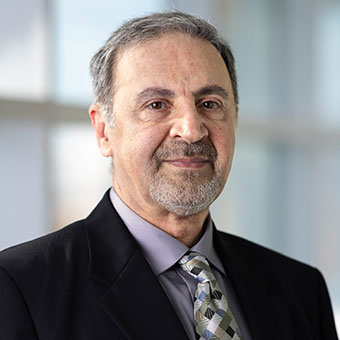
Nader Habibi is the Henry J. Leir Professor of the Economics of the Middle East at Brandeis University. Before joining the Center in 2007, he was managing director of the Middle East and North Africa Division at IHS-Global Insight. He holds a PhD in economics and a MS in systems engineering from Michigan State University. He has also worked as a research fellow at the Middle East Council at Yale University. His recent publications include "Preventing Overeducation and Graduate Surplus: What Can West Asia Learn from Singapore and Hong Kong?" "Asian Education and Development Studies" (2019); and "The Politics of Development and Security in Iran’s Border Provinces," with Erik Lob, "The Middle East Journal" (Summer 2019).

Killian Clarke is an assistant professor in the Edmund A. Walsh School of Foreign Service at Georgetown University and a faculty leave fellow at the Crown Center. His research examines the origins and consequences of grassroots mobilization and protests, and their contribution to transformative political events like revolutions, regime change, and democratization. At Georgetown he is affiliated with the Center for Contemporary Arab Studies, and much of his research focuses on the Middle East. He received his PhD from Princeton University's Department of Politics. His work has been published in a number of forums, including American Political Science Review, British Journal of Political Science, World Politics, Journal of Peace Research, Perspectives on Politics, and Comparative Politics. He is working on a book, "Return of Tyranny," that explains why some revolutionary governments are toppled by counterrevolutions, whereas others go on to establish durable and long-lasting regimes.
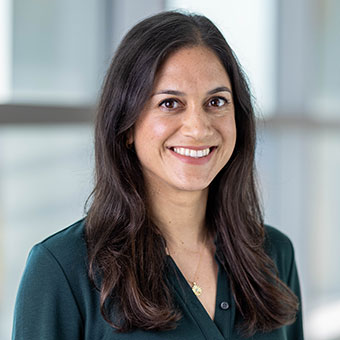
Nihal Kayali is a sociologist interested in international migration, organizations, and the political sociology of welfare states and a junior research fellow at the Crown Center. Her dissertation examines how refugee reception policies shape configurations of nonstate service provision and access, with a focus on the role of Syrian refugee healthcare providers in Turkey. Nihal’s work has appeared in The International Journal for Middle East Studies, Voluntas: International Journal of Voluntary and Nonprofit Organizations, and Middle East Report. Prior to her graduate studies, Nihal worked as a researcher and journalist in Istanbul, covering a range of topics related to Turkey’s reception of Syrian refugees. She received her PhD in sociology from the University of California, Los Angeles, and earned her BA in political science at Yale University.
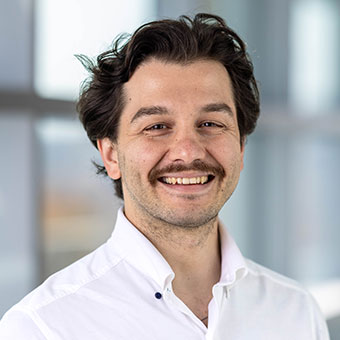
Kerem Uşşaklı is a political anthropologist and a junior research fellow at the Crown Center. He writes on the possibilities of inter-ethnic sociality in the light of histories of war and dispossession in the racialized and securitized contemporary Middle East. His current book project, tentatively titled "Civility After Dispossession: Politics of Decolonization in the Kurdish-Iraqi Borderlands," is an ethnography of the performances of civility displayed by formerly dispossessed Iraqi Kurds and displaced Iraqi Arabs after the invasion of Iraq in 2003. This is a work that investigates how the history of political violence in the Garmiyan Region and the disputed territories of Iraq is lived out in the present. He is also researching the nexus of digital sovereignty, authoritarian populism, and practices of evasion from the state in Turkey. He received his PhD from the Department of Anthropology at Stanford University.